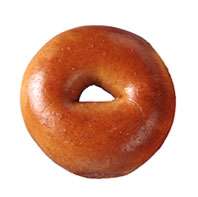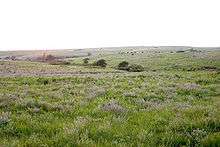Definify.com
Webster 1913 Edition
Plain
Plain
,Plain
,Plain
,Plain
,Worshiped in Rabba and her watery
Definition 2026
plain
plain
English
Adjective

plain (comparative plainer, superlative plainest)
- (now rare, regional) Flat, level. [from 14th c.]
- Bible, Isaiah xl. 4
- The crooked shall be made straight, and the rough places plain.
- Bible, Isaiah xl. 4
- Simple.
- Ordinary; lacking adornment or ornamentation; unembellished. [from 14th c.]
- He was dressed simply in plain black clothes.
- a plain tune
- 2013 September-October, Henry Petroski, “The Evolution of Eyeglasses”, in American Scientist:
- The ability of a segment of a glass sphere to magnify whatever is placed before it was known around the year 1000, when the spherical segment was called a reading stone, essentially what today we might term a frameless magnifying glass or plain glass paperweight.
- Of just one colour; lacking a pattern.
- a plain pink polycotton skirt
- Simple in habits or qualities; unsophisticated, not exceptional, ordinary. [from 16th c.]
- They're just plain people like you or me.
- Henry Hammond (1605-1660)
- plain yet pious Christians
- Abraham Lincoln (1809-1865)
- the plain people
- (of food) Having only few ingredients, or no additional ingredients or seasonings; not elaborate, without toppings or extras. [from 17th c.]
- Would you like a poppy bagel or a plain bagel?
- (computing) Containing no extended or nonprinting characters (especially in plain text). [from 20th c.]
- Ordinary; lacking adornment or ornamentation; unembellished. [from 14th c.]
- Obvious.
- Evident to one's senses or reason; manifest, clear, unmistakable. [from 14th c.]
- 1843, Thomas Carlyle, Past and Present, book 2, ch. XV, Practical — Devotional
- In fact, by excommunication or persuasion, by impetuosity of driving or adroitness in leading, this Abbot, it is now becoming plain everywhere, is a man that generally remains master at last.
- 1843, Thomas Carlyle, Past and Present, book 2, ch. XV, Practical — Devotional
- Downright; total, unmistakable (as intensifier). [from 14th c.]
- His answer was just plain nonsense.
- Evident to one's senses or reason; manifest, clear, unmistakable. [from 14th c.]
- Open.
- Honest and without deception; candid, open; blunt. [from 14th c.]
- Let me be plain with you: I don't like her.
- William Shakespeare (1564-1616)
- an honest mind, and plain
- Clear; unencumbered; equal; fair.
- Felton
- Our troops beat an army in plain fight.
- Felton
- Honest and without deception; candid, open; blunt. [from 14th c.]
- Not unusually beautiful; unattractive. [from 17th c.]
- Throughout high school she worried that she had a rather plain face.
Synonyms
Antonyms
Derived terms
|
Related terms
Translations
|
|
Adverb
plain (not comparable)
- (colloquial) Simply
- It was just plain stupid.
- I plain forgot.
Etymology 2
From Anglo-Norman plainer, pleiner, variant of Anglo-Norman and Old French pleindre, plaindre, from Latin plangere, present active infinitive of plangō.
Alternative forms
Noun
plain (plural plains)
- (rare, poetic) A lamentation.
- 1815, Sir Walter Scott, The Lady of the Isles, Canto IV, part IX
- The warrior-threat, the infant's plain,
- The mother's screams, were heard in vain;
- 1815, Sir Walter Scott, The Lady of the Isles, Canto IV, part IX
Verb
plain (third-person singular simple present plains, present participle plaining, simple past and past participle plained)
- (reflexive, obsolete) To complain. [13th-19th c.]
- c. 1390, William Landland, Piers Plowman, Prologue:
- Persones and parisch prestes · pleyned hem to þe bischop / Þat here parisshes were pore · sith þe pestilence tyme […].
- c. 1390, William Landland, Piers Plowman, Prologue:
- (transitive, intransitive, now rare, poetic) To lament, bewail. [from 14th c.]
- to plain a loss
- (Can we find and add a quotation of Sir J. Harrington to this entry?)
- Bishop Joseph Hall
- Thy mother could thee for thy cradle set / Her husband's rusty iron corselet; / Whose jargling sound might rock her babe to rest, / That never plain'd of his uneasy nest.
- Alfred Edward Housman, More Poems, XXV, lines 5-9
- Then came I crying, and to-day,
- With heavier cause to plain,
- Depart I into death away,
- Not to be born again.
Related terms
Etymology 3
From Old French plain, from Latin plānum (“level ground, a plain”), neuter substantive from plānus (“level, even, flat”).
Noun

plain (plural plains)
- An expanse of land with relatively low relief.
- Milton
- Him the Ammonite / Worshipped in Rabba and her watery plain.
- 1961, J. A. Philip. Mimesis in the Sophistês of Plato. In: Proceedings and Transactions of the American Philological Association 92. p. 467.
- For Plato the life of the philosopher is a life of struggle towards the goal of knowledge, towards “searching the heavens and measuring the plains, in all places seeking the nature of everything as a whole”
- Milton
- A battlefield.
- (Can we find and add a quotation of Arbuthnot to this entry?)
- Shakespeare
- Lead forth my soldiers to the plain.
- (obsolete) A plane.
Synonyms
Antonyms
Derived terms
- abyssal plain
- alluvial plain
- flood plain/floodplain
- gibber plain
- Great Plains
- peneplain
- Plains
- plain wanderer
- salt plain
- the rain in Spain falls mainly in the plain
Related terms
See also
Translations
|
|
Verb
plain (third-person singular simple present plains, present participle plaining, simple past and past participle plained)
- (obsolete, transitive) To plane or level; to make plain or even on the surface.
- Wither
- We would rake Europe rather, plain the East.
- Wither
- (obsolete, transitive) To make plain or manifest; to explain.
- Shakespeare
- What's dumb in show, I'll plain in speech.
- Shakespeare
Statistics
Anagrams
Dalmatian
Etymology
From Latin plēnus. Compare Italian pieno, Romansch plain, Romanian plin, French plein.
Adjective
plain (feminine plaina)
French
Etymology
From Old French plain, from Latin plānus.
Pronunciation
Adjective
plain m (feminine singular plaine, masculine plural plains, feminine plural plaines)
- (obsolete) plane
Anagrams
Middle French
Etymology
From Old French plain, from Latin plēnus.
Adjective
plain m (feminine singular plaine, masculine plural plains, feminine plural plaines)
- full (not empty)
Old French
Etymology 1
Adjective
plain m (feminine plaine)
- full (not empty)
- circa 1170, Chrétien de Troyes, Érec et Énide:
- De tant come ele l'ot veü,
- Que plains estoit de felenie.
- As she had seen
- He was full of evil
- circa 1170, Chrétien de Troyes, Érec et Énide:
Antonyms
- (full): vuit
Descendants
- French: plein
Etymology 2
From Latin plānum (“level ground, a plain”), neuter substantive from plānus (“level, even, flat”).
Noun
plain m (oblique plural plainz, nominative singular plainz, nominative plural plain)
- plain (flat area)
Synonyms
Descendants
- English: plain
Etymology 3
From Latin plānus (“level, even, flat”).
Adjective
plain m (oblique and nominative feminine singular plaine)
- flat (not even or mountainous)